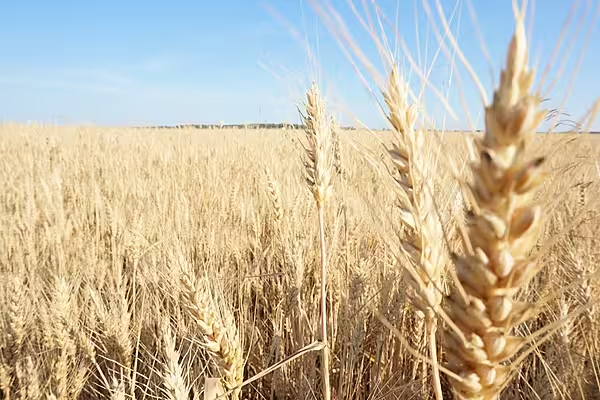Palm oil stockpiles in Malaysia declined in July as exports from the world’s second-largest producer surged to the highest this year.
Inventories fell 0.2 percent to 1.77 million metric tons at the end of July from a revised 1.775 million tons a month earlier, according to data released by the Malaysian Palm Oil Board on Wednesday. That compares with the median estimate of 1.82 million tons in a Bloomberg survey. Crude palm oil production rose 3.5 percent to 1.59 million tons, climbing for a fifth straight month while exports surged 21 percent to 1.38 million tons, the highest since December.
Palm oil futures have rallied 14 percent since entering a bear market last month as exports revived and concerns mounted that heavy rains caused by a La Nina may hamper harvests. China’s appetite for palm oil is set to recover ahead of its major Mid-Autumn festival, potentially boosting demand for the edible oil used to make fried foods and seasonal treats like mooncakes.
“We still expect China to continue to stock up ahead of a key festival and before winter kicks in,” said David Ng, derivatives specialist at Phillip Futures Sdn. in Kuala Lumpur. “Prices may continue to rally, but the upside may be limited by the price premium between soybean oil and palm oil.”
Soyoil Premium
Futures on Bursa Malaysia Derivatives closed 1.4 percent higher at 2,500 ringgit ($627) a ton on Wednesday, the highest settlement since June 13. Soybean oil’s premium to palm oil narrowed to $81 a ton on Wednesday from as high as $138 last month.
Shipments from Malaysia jumped 17.8 percent to 456,481 tons in the first 10 days of August from the same period a month earlier, led by higher purchases by China and India, cargo surveyor Intertek Testing Services said Wednesday. Societe Generale de Surveillance reported an 18 percent jump in shipments to 465,743 tons.
While production is recovering from dry weather caused by the El Nino, growth is slow and stressed trees may report higher yields only from September, according to Zakaria Arshad, chief executive officer Felda Global Ventures Holdings Bhd., the world’s biggest crude palm oil producer. Output was 16 percent lower in the first seven months of the year from a year earlier, with July production being the lowest for the month since 2010, board data showed.
"The production should continue to increase albeit at a slower rate of 8-10 percent, both in August and September. The only caveat here is the timing of these increases," said Paramalingam Supramaniam, director at Selangor-based brokerage Pelindung Bestari Sdn. The stronger ringgit may “pose some resistance” to prices, he said.
News by Bloomberg, edited by ESM. To subscribe to ESM: The European Supermarket Magazine, click here.














